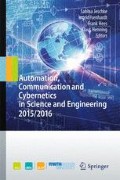Abstract
In Germany, there are more than four million people (almost 6 % of the entire population) living with dyscalculia, a disorder which alludes numbers as well as general arithmetic and is closely related to dyslexia (Die Zeit Online, “Ziffern ohne Sinn”. Retrieved online, May 21st, 2015, from http://www.zeit.de/2013/29/dyskalkulie-zahlenblind-teilleistungsstoerung). The estimated number of unreported cases is probably even higher. Medical researchers talk about a “forestalled elite” since these people are commonly not less intelligent than non-handicapped individuals. Still, they rarely make it to a university-entrance diploma; they get lost on the way because of missing standby facilities offered in primary and continuative schools (Die Zeit Online, “Verhinderte Elite”. Retrieved online, May 21st, 2015, from http://www.zeit.de/2003/42/C-Legasthenie-Schule). They require special needs and attention in order to learn and show their de facto potential. This paper deals with the dyscalculic-friendliness of learning environments provided by Mixed-Reality Simulators. After a presentation of the scientific state of the art on the specific needs of affected students, it will be elaborated in how far virtual environments used in the education of mechanical engineering students can sufficiently not only meet those needs but support them in their study.
Access this chapter
Tax calculation will be finalised at checkout
Purchases are for personal use only
References
Spiegel Online – Unispiegel. Studenten in Deutschland: So viele gab’s noch nie, 2014. http://www.spiegel.de/unispiegel/studium/studentenzahl-2-7-millionen-studieren-an-deutschen-hochschulen-a-1005107. Retrieved online, May 21st, 2015
Deutsches Studentenwerk. Nachteilsausgleich: Antragsverfahren und Nachweise. http://www.studentenwerke.de/de/content/nachteilsausgleich-antragsverfahren-und-nachweise. Retrieved online, May 21st, 2015
Allgemeiner Studierendenausschuss der RWTH Aachen. Gleichstellung. https://www.asta.rwth-aachen.de/de/startseite. Retrieved online, May 21st, 2015
T. Käser, A.G. Busetto, G.M. Baschera, J. Kohn, K. Kucian, M. von Aster, M. Gross. Modelling and optimizing the process of learning mathematics, 2012. http://link.springer.com/chapter/10.1007 Retrieved online, May 21st, 2015
Universität Würzburg. Informationen zum Nachteilsausgleich für Studierende mit Behinderung und chronischer Erkrankung. http://www.behindertenbeauftragter.uni-wuerzburg.de/fileadmin/32500250/_temp_/Broschuere_Nachteilsausgleich.pdf. Retrieved online, May 21st, 2015
L. Breiman. Bagging predictors, 1996. http://statistics.berkeley.edu/sites/default/files/tech-reports/421.pdf. Retrieved online, 21st, 2015
J. Haffner, K. Baro, P. Parzer, F. Resch. Heidelberger rechentest, 2005. http://www.testzentrale.de/programm/heidelberger-rechentest.html. Retrieved online, May 21st, 2015
Dyscalculia.org (n.d.). Best tools. http://www.dyscalculia.org/math-tools. Retrieved online, May 21st, 2015
Dybuster. Dybuster ortograph & Dybuster calcularis. http://www.dybuster.com/orthograph. Retrieved online, May 21st, 2015
K. Schuster, M. Hoffmann, U. Bach, A. Richert, S. Jeschke, Diving in? How users experience virtual environments using the virtual theatre. In: Proceedings of the 3rd International Conference on Design, User Experience, and Usability (DUXU 2014), Heraklion, Crete, 22–27 June 2014, Lecture Notes in Computer Science Springer, vol. 8518. Springer, 2014, Lecture Notes in Computer Science Springer, vol. 8518, pp. 636–646
K. Schuster, D. Ewert, D. Johansson, U. Bach, R. Vossen, S. Jeschke, Verbesserung der Lernerfahrung durch die Integration des Virtual Theatres in die Ingenieurausbildung. In: Innovationen für die Zukunft der Lehre in den Ingenieurwissenschaften, ed. by A.E. Tekkaya, S. Jeschke, M. Petermann, TeachING-LearnING.EU discussions, TeachING-LearnING.EU, 2013, pp. 246–260
M. Hoffmann, K. Schuster, D. Schilberg, S. Jeschke, Bridging the gap between students and laboratory experiments. In: Virtual, Augmented and Mixed Reality. 6th International Conference, VAMR 2014, Held as Part of HCI International 2014, Heraklion, Crete, Greece, June 22–27, 2014: proceedings, Heraklion, Crete, Greece, ed. by R. Shumaker. Springer, Cham, 2014, Lecture notes in computer science, 8525–8526, pp. 39–50
M. Hoffmann, K. Schuster, D. Schilberg, S. Jeschke, Next-generation teaching and learning using the virtual theatre. In: 4th Global Conference on Experiential Learning in Virtual Worlds Prague, Czech Republic. 2014
A. Schabman, C. Klicpera, Lehasthenie – LRS: Modelle, Diagnose, Therapie und Förderung. Stuttgart, 2013
Bundesverband Legasthenie und Dyskalkulie. Legasthenie. http://www.bvl-legasthenie.de/legasthenie. Retrieved online, May 21st, 2015
Acknowledgments
This work was supported by the project ELLI (Excellent Teaching and Learning within engineering science) at the RWTH Aachen University in terms of investigating laboratory experiment simulations and Remote Labs.
Author information
Authors and Affiliations
Corresponding author
Editor information
Editors and Affiliations
Rights and permissions
Copyright information
© 2016 Springer International Publishing Switzerland
About this chapter
Cite this chapter
Lenz, L., Schuster, K., Richert, A., Jeschke, S. (2016). Are Virtual Learning Environments Appropriate for Dyscalculic Students?. In: Jeschke, S., Isenhardt, I., Hees, F., Henning, K. (eds) Automation, Communication and Cybernetics in Science and Engineering 2015/2016. Springer, Cham. https://doi.org/10.1007/978-3-319-42620-4_29
Download citation
DOI: https://doi.org/10.1007/978-3-319-42620-4_29
Published:
Publisher Name: Springer, Cham
Print ISBN: 978-3-319-42619-8
Online ISBN: 978-3-319-42620-4
eBook Packages: Mathematics and StatisticsMathematics and Statistics (R0)

